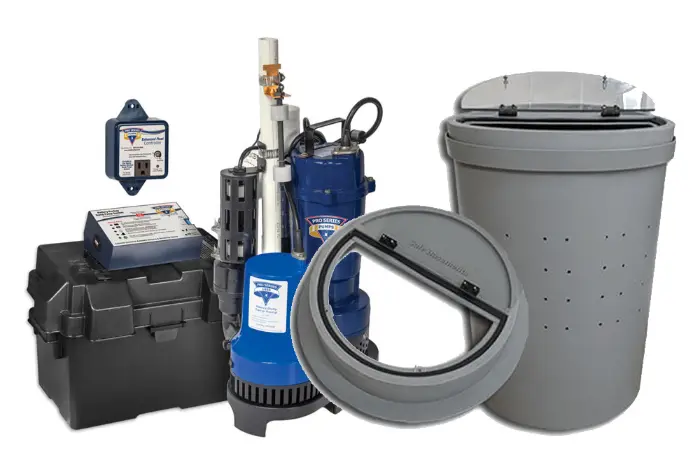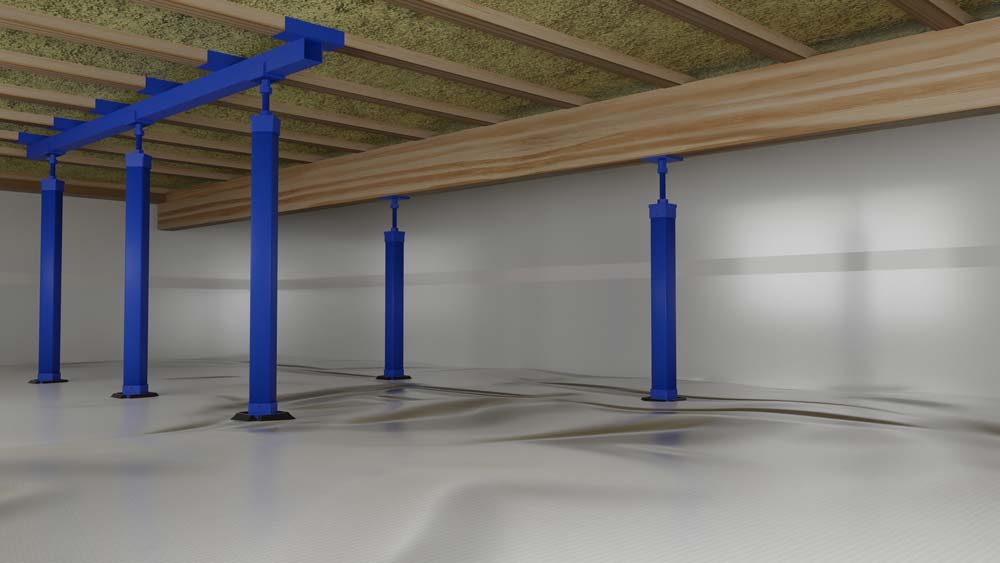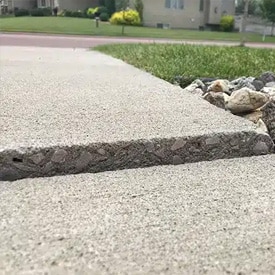
What signs do you see? Intermittent puddles on the floor? The unmistakable smell of mold and mildew? Steaks on the basement walls? Damp basements can not only ruin your possessions but also structural damage to your home itself. Whether you have a relatively new build or a historic Maryland home, wet basements demand an understanding of 1) why the water is getting in and 2) how to stop it with basement waterproofing.
Typical Problems and Common Causes of Basement Leaks
The most common cause of basement leaks is from water pressure created by moisture in the soil surrounding the home’s foundation. There are two different forms of pressure that can cause issues. During periods of heavy or persistent rain, the soil can become saturated, creating hydrostatic pressure (or water pressure) that can push moisture and water through your basement walls and floor.
Another cause is lateral pressure. The looser soil around your foundation tends to absorb more water. The area around the home is often flooded with rainwater from clogged gutters or downspouts that are discharging water right next to the foundation. When the soil expands, it creates lateral, or sideways, pressure against the foundation.
Water can find its way into your basement in a number of ways: through cracks in the walls, at the joint where the poured concrete floor meets the wall. Depending on the construction, it can even come through cracks in mortar joints of block or masonry foundation walls.
Window wells can be another cause of water leaks in the basement. If a window well is not properly installed, the panes crack, or if the drain becomes clogged, the window well can fill with water. Either due to poor garden drainage or during heavy rain, the water can seep into your basement. Water stains on the walls are a sure sign of leaky basement windows.
Fixing Basement Leaks
A few fixes are easy and cheap. Clean your gutters. When it rains, clogged gutters can overflow and rainwater can pool around your foundation. Removing leaves and debris and installing leaf guards and downspout extenders to direct water away from the house can all help prevent the soil around your house from becoming saturated.
Some solutions take a little more effort and investment. Repair problem window wells. Improve grading in the garden to make sure surrounding soil is pitched away from the house. Water should drain toward your yard, not your foundation.
If you suspect a serious problem, call American Eagle Professional Services to install an interior basement waterproofing system. The most effective way to keep water out of your basement is to install an interior drainage system that minimizes hydrostatic pressure. For example, installing drain tile along the joint where the floor meets the wall, where most water leakage occurs, can capture water before it makes its way onto the basement floor.
The team at American Eagle Professional Services is proud to provide basement waterproofing, foundation repair, bowed wall repair, wall crack repair, crawl space waterproofing, sagging floor repair, mold control, and many more services to homeowners.
This month is the perfect time to address your moisture issues. American Eagle Professional Services provides quality basement waterproofing, foundation repair, and mold control in Maryland. Understanding both the geography of Glen Burnie and the construction of your home ensures that we offer you the best solution for your moisture problems. Contact our basement waterproofing experts at American Eagle to set up an inspection to reveal the causes and options to control moisture and mold in your home.





